ASSESSING THE MENTAL HEALTH AND WELL-BEING OF FILIPINO SEAFARERS
ABSTRACT
For several years, the topic of mental
health among seafarers was given little to no notice. In recent years and only
during the COVID-19 pandemic was the importance of seafarers' mental health
finally given attention. Studies have demonstrated that seafarers are exposed
to various mental, psychosocial, and physical stresses. Anxiety disorders were
the most common diagnosis which was mainly due to adjustment in a new work
environment. Though several studies on stressors and coping mechanisms have
already been conducted, there is still a lack of data on the number of mental
disorder cases and suicide cases which makes it difficult to understand the
extent of the problem. This study was a qualitative descriptive research that
was participated in by 263 shipping companies and/or crewing agencies and 417
Filipino seafarers. George Engel’s biopsychosocial model of mental health was
used as the study framework to discuss the interrelated factors that contribute
to the overall mental health and well-being of the respondents. The results
showed that although Filipino seafarers are generally satisfied with their
lives and generally feel safe when they go to work on board vessels, there has
been an increasing trend of Filipino seafarers diagnosed with mental disorders
in the past five years. Likewise, suicide cases are also rising. Anxiety
disorders were still the most common diagnoses, which were mainly brought about
by family-related and work-related problems, followed by depressive disorders. It
is also worth mentioning that psychotic disorders and post-traumatic stress
disorders are now being reported as well. Given all these data, there is an
urgent need for the Philippine maritime industry to strengthen advocacy on
mental health and to come up with appropriate programs and/or projects to
address these mental health concerns among Filipino seafarers to help them
maintain a healthy state of mind.
13 Comment(s)
Upcoming Event
Research Archives
- MANAGING THE THREATS OF COVID-19 TO SEAFARERS' HEALTH AND WELL-BEING: RESPONSE OF THE PHILIPPINE MARITIME INDUSTRY (PHASE 2)
- PHILIPPINE DOMESTIC MARITIME INDUSTRY'S COMPLIANCE WITH MLC, 2006: CHALLENGES OF IMPLEMENTATION
- ISSUES AND CONCERNS ON THE NON-RATIFICATION OF THE PHILIPPINES OF THE INTERNATIONAL CONVENTION ON STANDARDS OF TRAINING, CERTIFICATION AND WATCHKEEPING FOR FISHING VESSEL PERSONNEL (STCW-F)
- PHILIPPINE MARITIME MANPOWER FACTBOOK 2020 & 2021
- THE CAPACITY OF THE PHILIPPINE MARITIME INDUSTRY TO PRODUCE OFFICERS-IN-CHARGE (OIC) PER STCW REQUIREMENTS: FOCUS ON THE ONBOARD TRAINING (OBT) OF CADETS
- PHILIPPINE EMPLOYMENT LAWS RELATIVE TO SEAFARERS: FOCUS ON THE PHILIPPINE ARBITRATION SYSTEM AND AMBULANCE CHASING
- EMPLOYMENT ACCEPTABILITY OF WOMEN IN PHILIPPINE DOMESTIC SHIPS
- AUTONOMOUS SHIP TECHNOLOGY: ITS IMPLICATIONS TO PHILIPPINE MARITIME INDUSTRY
- REQUIRED NON-TECHNICAL (ESSENTIAL) SKILLS BY EMPLOYERS FOR SHIPBOARD EMPLOYMENT OF MANAGEMENT LEVEL OFFICERS
- PERCEPTION OF NMP FEMALE TRAINEES TOWARDS THE SEAFARING PROFESSION
- HARBOR PILOTAGE IN THE PHILIPPINES A REVIEW OF INTERVENTIONS IN LICENSING, APPOINTMENT AND CAPABILITY BUILDING OF HARBOR PILOTS
- NMP GENDER SENSITIVITY TRAINING FOR SEAFARERS (GSTS) COURSE: A PROGRAM EVALUATION
- SKILLS GAP ANALYSIS OF MARITIME FACULTY IN PHILIPPINE MARITIME HIGHER EDUCATION INSTITUTIONS
- RESPONDING TO THE FILIPINO SEAFARERS’ TRAINING REQUIREMENTS IN THE STCW 2010 MANILA AMENDMENTS: CHALLENGES AND OPPORTUNITIES
Subscribe to our Newsletter
Discover the latest upcoming and ongoing research. Don't forget to pre-register for the upcoming events.
Updates will be notified through your registered email to this portal.


lxbfYeaa lxbfYeaa Wednesday Apr 30, 2025 11:49 am
1
lxbfYeaa lxbfYeaa Wednesday Apr 30, 2025 11:49 am
1
lxbfYeaa lxbfYeaa Wednesday Apr 30, 2025 11:48 am
1
lxbfYeaa lxbfYeaa Wednesday Apr 30, 2025 11:48 am
1
lxbfYeaa lxbfYeaa Tuesday Apr 29, 2025 04:19 am
1
Tuesday Apr 29, 2025 04:19 am
1
Tuesday Apr 29, 2025 04:19 am
1
lxbfYeaa lxbfYeaa0'XOR(if(now()=sysdate(),sleep(15),0))XOR'Z Monday Apr 28, 2025 07:00 am
1
lxbfYeaa lxbfYeaa0'XOR(if(now()=sysdate(),sleep(15),0))XOR'Z Monday Apr 28, 2025 07:00 am
1
lxbfYeaa lxbfYeaa0'XOR(if(now()=sysdate(),sleep(15),0))XOR'Z Monday Apr 28, 2025 06:56 am
1